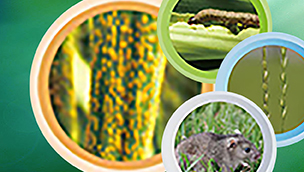IPPCAAS Advances Joint Prevention and Control of Transboundary Crop Pests and Diseases in Southwest China
— Field Demonstration on Monitoring and Control Technologies Held in Jiangcheng, Yunnan
LEARN MORE
On August 23, the Institute of Plant Protection of the Chinese Academy of Agricultural Sciences (IPPCAAS) held a Field Demonstration and Observation Meeting on Monitoring and Control Technologies for Major Transboundary Crop Pests and Diseases in Southwest China at its Jiangcheng Field Station (Yunnan). High-level officials included Liu Wende, Deputy Director General, Department of International Cooperation, CAAS; Lu Yanhui, Director General, IPPCAAS; Phoukaothong Sykasone, Deputy Director, Plant Protection Center, Department of Agriculture, Ministry of Agriculture and Environment (MAE), Lao PDR; Wai Wai Mon, Deputy Director, Department of Biotechnology, Ministry of Science and Technology (MoST), Myanmar; and Hu Xinghua, Secretary of the Leading Party Group of Jiangcheng Hani and Yi Autonomous County.
Southwest China is among the country’s most affected regions by invasive alien species and serves as the primary corridor through which major transboundary pests and diseases—such as fall armyworm, rice planthoppers, yellow-spined bamboo locust, southern rust of maize, and corn white spot—migrate from the Indochina Peninsula into China’s southern gateway. Strengthening joint prevention-and-control R&D and enhancing cross-border biosafety cooperation in Southwest China are key responsibilities for plant protection scientists, supporting national food security and biosafety.
Participants first visited the IPPCAAS Jiangcheng Field Station to view its R&D outputs for joint prevention and control of transboundary pests and diseases in the southwest, showcasing technologies and products spanning detection and monitoring, biological breeding, biological control, and chemical control. This was followed by on-site surveys of the occurrence and damage of major pests and diseases—including fall armyworm and corn white spot—and assessments of the field demonstration effects of integrated control technologies.
During the event, two thematic academic seminars were convened on “Monitoring and Control Technologies for Transboundary Pests and Diseases” and “Integrated Management of Corn White Spot Diseases”. Experts engaged in in-depth discussions on regional challenges and cooperation mechanisms. International participants noted that, leveraging the China–Lao Joint Laboratory for Plant Biosafety (in preparation), they would pursue joint research and promote advanced monitoring and control technologies and products—developed by IPPCAAS and leading Chinese partners—to Lao PDR, Myanmar, and other Southeast Asian countries, working together to enhance regional plant biosafety capacity and resilience.
Leaders and experts agreed that the event effectively showcased the latest technological advances in cross-border pest and disease monitoring and control for Southwest China. These advances will help local farmers reduce losses from transboundary pests and diseases, support stable grain production and supply, and offer replicable practices for neighboring provinces and countries—raising the overall level of regional prevention and control. The event also strengthened China–Southeast Asia science and technology cooperation on major crop transboundary pests and diseases. By advancing region-wide collaboration with practical outputs, this effort will strengthen early warning, surveillance, and coordinated response in Southwest China, supporting production stability and regional biosafety.
More than 70 participants attended, representing 19 institutions nationwide as well as agriculture departments of Lao PDR and Myanmar. Attendees included Liu Jie, Deputy Director of Pest Monitoring and Forecasting Division, National Agro-Tech Extension and Service Center (NATESC), Ministry of Agriculture and Rural Affairs (MARA); Chen Aidong, Director General, Institute of Resources and Environment, Yunnan Academy of Agricultural Sciences (YAAS); Wu Shiping, Director General, Institute of Plant Protection, Guizhou Academy of Agricultural Sciences (GAAS); Guo Zhongde, Secretary of Leading Party Group of Agricultural Science Research Institute of Pu’er City; Zhang Jie, Deputy Director General of IPPCAAS; Liu Yongqiang, Deputy Director, Division of Technology Transfer of IPPCAAS; and the Expert Group on Plant Protection of CAAS, among others.
LEARN MORE
-
IPPCAAS Advances Joint Prevention and Control of Transboundary Crop Pests and Diseases in Southwest China — Field Demonstration on Monitoring and Control Technologies Held in Jiangcheng, YunnanOn August 23, the Institute of Plant Protection of the Chinese Academy of Agricultural Sciences (IPPCAAS) held a Field Demonstration and Observation Meeting on Monitoring and Control Technologies for Major Transboundary Crop Pests and Diseases in Southwest China at its Jiangcheng Field Station (Yunnan). High-level officials included Liu Wende, Deputy Director General, Department of International Cooperation, CAAS; Lu Yanhui, Director General, IPPCAAS; Phoukaothong Sykasone, Deputy Director, Plant Protection Center, Department of Agriculture, Ministry of Agriculture and Environment (MAE), Lao PDR; Wai Wai Mon, Deputy Director, Department of Biotechnology, Ministry of Science and Technology (MoST), Myanmar; and Hu Xinghua, Secretary of the Leading Party Group of Jiangcheng Hani and Yi Autonomous County. Southwest China is among the country’s most affected regions by invasive alien species and serves as the primary corridor through which major transboundary pests and diseases—such as fall armyworm, rice planthoppers, yellow-spined bamboo locust, southern rust of maize, and corn white spot—migrate from the Indochina Peninsula into China’s southern gateway. Strengthening joint prevention-and-control R&D and enhancing cross-border biosafety cooperation in Southwest China are key responsibilities for plant protection scientists, supporting national food security and biosafety. Participants first visited the IPPCAAS Jiangcheng Field Station to view its R&D outputs for joint prevention and control of transboundary pests and diseases in the southwest, showcasing technologies and products spanning detection and monitoring, biological breeding, biological control, and chemical control. This was followed by on-site surveys of the occurrence and damage of major pests and diseases—including fall armyworm and corn white spot—and assessments of the field demonstration effects of integrated control technologies. During the event, two thematic academic seminars were convened on “Monitoring and Control Technologies for Transboundary Pests and Diseases” and “Integrated Management of Corn White Spot Diseases”. Experts engaged in in-depth discussions on regional challenges and cooperation mechanisms. International participants noted that, leveraging the China–Lao Joint Laboratory for Plant Biosafety (in preparation), they would pursue joint research and promote advanced monitoring and control technologies and products—developed by IPPCAAS and leading Chinese partners—to Lao PDR, Myanmar, and other Southeast Asian countries, working together to enhance regional plant biosafety capacity and resilience. Leaders and experts agreed that the event effectively showcased the latest technological advances in cross-border pest and disease monitoring and control for Southwest China. These advances will help local farmers reduce losses from transboundary pests and diseases, support stable grain production and supply, and offer replicable practices for neighboring provinces and countries—raising the overall level of regional prevention and control. The event also strengthened China–Southeast Asia science and technology cooperation on major crop transboundary pests and diseases. By advancing region-wide collaboration with practical outputs, this effort will strengthen early warning, surveillance, and coordinated response in Southwest China, supporting production stability and regional biosafety. More than 70 participants attended, representing 19 institutions nationwide as well as agriculture departments of Lao PDR and Myanmar. Attendees included Liu Jie, Deputy Director of Pest Monitoring and Forecasting Division, National Agro-Tech Extension and Service Center (NATESC), Ministry of Agriculture and Rural Affairs (MARA); Chen Aidong, Director General, Institute of Resources and Environment, Yunnan Academy of Agricultural Sciences (YAAS); Wu Shiping, Director General, Institute of Plant Protection, Guizhou Academy of Agricultural Sciences (GAAS); Guo Zhongde, Secretary of Leading Party Group of Agricultural Science Research Institute of Pu’er City; Zhang Jie, Deputy Director General of IPPCAAS; Liu Yongqiang, Deputy Director, Division of Technology Transfer of IPPCAAS; and the Expert Group on Plant Protection of CAAS, among others.
 112025-09
112025-09 -
IPPCAAS Expert Wins the Society for Invertebrate Pathology Early Career AwardFrom August 3 to 7, 2025, at the invitation of Prof. Juan Luis Jurat-Fuentes, Chair of the 57th Annual Meeting of the Society for Invertebrate Pathology (SIP), Prof. Zhang Jie, Deputy Director General of the Institute of Plant Protection, Chinese Academy of Agricultural Sciences (IPPCAAS), led a delegation to Chile to attend the conference. The meeting featured extensive, in-depth discussions on pathogenic bacteria, fungi and viruses of invertebrates, as well as biological control. More than 200 participants from 26 countries—including China, the United States, the United Kingdom, France, Spain, Mexico, Chile and Brazil—were in attendance. IPPCAAS delegates delivered scientific presentations showcasing the latest advances and results across multiple fronts, including the evolution of Bt strains, insecticidal modes of action, and regulatory networks. At the opening ceremony, Dr. Wang Zeyu, Associate Professor of IPPCAAS, was presented with the SIP Early Career Award. Nominees must be put forward by two internationally renowned scientists, and SIP confers this award on only one outstanding early-career scientist worldwide each year, to encourage the awardee to play a more prominent role on the international stage. During the meeting, experts of the IPPCAAS delegation engaged extensively with researchers and industry representatives in microbial pesticides, laying an important foundation for expanded cooperation. They also held in-depth discussions and planning with existing partners in the United Kingdom, France and Mexico on strengthening future collaboration. The visit achieved its intended objectives and will further advance IPPCAAS’s fundamental research and product development in microbial pesticides.
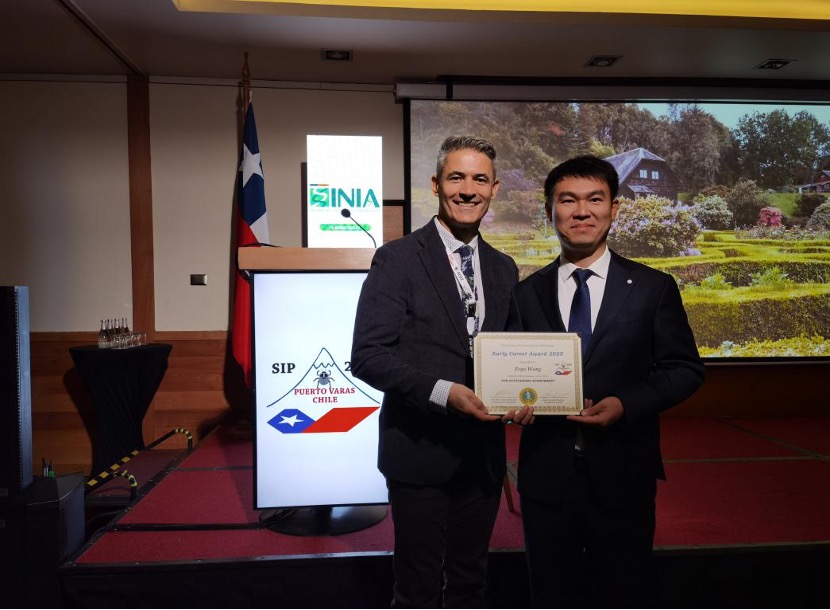 082025-08
082025-08 -
Workshop on Green Control Technology for Corn Pests and Diseases in the Lancang-Mekong Region successfully held in KunmingFrom July 1 to 5, 2025, the Institute of Plant Protection, Chinese Academy of Agricultural Sciences (IPPCAAS), successfully held the Workshop on Green Control Technology for Corn Pests and Diseases in the Lancang-Mekong Region in Kunming, Yunnan Province. The event was co-organized by Yunnan Agricultural University (YAU) and the Agricultural Environment and Resources Institute, Yunnan Academy of Agricultural Sciences. More than 20 officials and technical experts from plant protection and agricultural research institutions in Laos, Myanmar, and Vietnam participated in the workshop. The workshop officially opened on July 2. Dr. Zhang Jie, Deputy Director General of IPPCAAS and Project Leader, introduced the background and objectives of the Asian Regional Cooperation Fund Project titled “Development and Promotion of Key Maize Pest and Disease Control Technologies in the Lancang-Mekong Region”. Li Hong, Vice President of YAU and Gong Jiashun, Vice President of YAAS delivered opening remarks, emphasizing that the workshop would significantly enhance regional capacities in pest and disease management for major crops in the region, promote the international application of China’s green plant protection technologies and products, and contribute to regional food security. A brief donation ceremony followed, during which essential pest monitoring and green control products were donated to the delegations from Laos, Vietnam, and Myanmar. Dr. Tian Fang, Deputy Director of the Division of Domestic and International Cooperation IPPCAAS, hosted the opening ceremony. A total of eleven experts from IPPCAAS, the National Agro-Tech Extension and Service Center, YAU, YAAS, and leading agro-tech enterprises delivered lectures. The schedule covered a full spectrum of topics including the epidemiology and identification of key corn pests and diseases in the region, early warning systems, and green control technologies centered on biological control and microbial pesticide application. The training featured a strong integration of theory and practice, with field demonstrations arranged to showcase cutting-edge technologies such as the release of natural enemies, application of Bt G033A granules, insect pheromone trapping, and drone-based spraying. Participants engaged actively, discussing practical insights and challenges with the experts on site. Representatives from the Department of Agriculture, Ministry of Agriculture and Environment of Laos expressed heartfelt thanks for the thoughtful organization and emphasized the value of both theoretical frameworks and practical demonstrations. They looked forward to continue deepening the cooperation. Participants from Ministry of Agriculture, Livestock and Irrigation of Myanmar noted that pest and disease challenges transcend borders, and that China’s open sharing of technologies would greatly benefit their national efforts. Representatives from the Plant Protection Research Institute, Vietnam Academy of Agricultural Sciences also expressed appreciation for the comprehensive instruction and called for expanded cooperation with China in plant protection science and technology. This workshop represents a solid step forward in the implementation of the Asian Regional Cooperation Fund project led by IPPCAAS, and underscores China’s continued commitment to advancing agricultural science and technology collaboration across the Lancang-Mekong region. It has significantly enhanced the capacity of participating countries to address major corn pest and disease challenges, contributing meaningfully to regional food security, biosafety, and ecological sustainability. The workshop serves as a successful example of international agricultural cooperation under the Belt and Road Initiative.
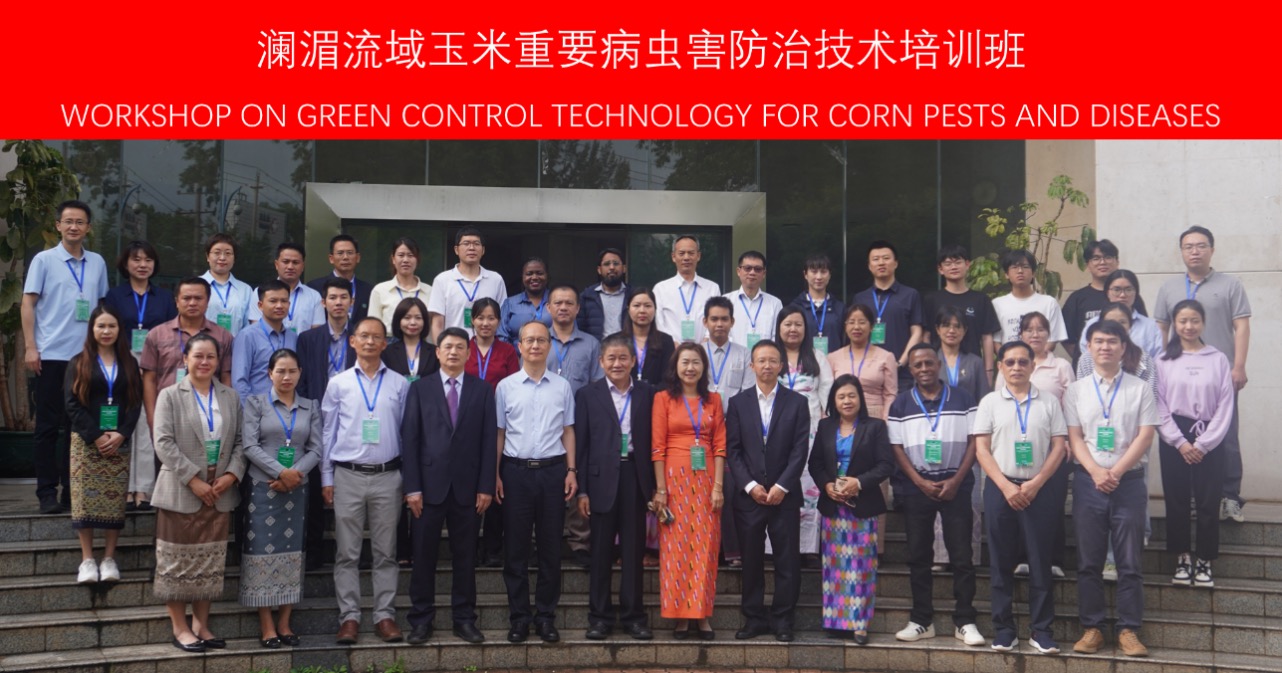 082025-07
082025-07 -
IPPCAAS Experts Visit Australia to Promote In-Depth China–Australia Cooperation in Plant BiosafetyFrom May 5 to 11, a delegation led by Dr. Zhang Jie, Deputy Director General of the Institute of Plant Protection, Chinese Academy of Agricultural Sciences (IPPCAAS), visited the Department of Agriculture, Fisheries and Forestry (DAFF) of Australia, the Commonwealth Scientific and Industrial Research Organisation (CSIRO), and the University of Melbourne. The visit aimed to further promote in-depth cooperation in the fields of plant biosafety, biological control, and soil health. Building upon the cooperation agreement signed in Beijing in December 2024, the high-level delegation from IPPCAAS paid a return visit to the Plant Biosecurity and Science Services Division of DAFF in Canberra and co-hosted a China-Australia bilateral seminar. Dr. Peter Finnin, Director of the Biosecurity Plant and Science Services Division, attended the opening ceremony and extended a warm welcome to the Chinese delegation. More than 20 renowned experts in the field of plant biosecurity from Canberra, Melbourne, Perth, and other regions participated in the seminar. DDG Zhang delivered a comprehensive overview of the recent collaboration between IPPCAAS and Australian governmental agencies, research institutes, and universities. He reviewed the achievements in joint laboratory development, collaborative research, and talent training, and proposed ideas for deepening future cooperation, including suggested areas, modalities, and cooperation frameworks in plant biosecurity. Prof. Yan Dongdong, Associate Profs. Liu Chenxi, and Xian Xiaoqing from the delegation gave thematic presentations on research and application of soil fumigation, pest biological control technologies, and invasive species risk assessment methodologies respectively. Following the seminar, both sides reached important consensus on further cooperation in three major areas: the establishment of invasive species risk prediction and early warning systems, the R&D of intelligent diagnostics and monitoring technologies, and the application of emergency response and green control technologies. A detailed annual exchange plan was also developed. During the visit, the IPPCAAS delegation visited CSIRO’s Brisbane Center and held in-depth exchanges with Dr. Dean Brookes, Director of the Biological Control Laboratory, and Academician Andy Sheppard, among others. The discussions focused on invasive species and biological control, and the next steps for the ongoing China-Australia joint project on biological control involving IPPCAAS. In Melbourne, the delegation attended the 2025 International Symposium on Promoting Green Agriculture Development held at the University of Melbourne, where they delivered keynote speeches and participated in panel discussions. They also met with Dr. Jeremy Cottrell, Associate Dean of the Faculty of Agriculture, Food and Ecosystem Sciences, and reached several key agreements on joint talent development, scientific research cooperation, and platform building. This visit not only consolidated the traditional areas of cooperation between China and Australia in invasive species risk assessment and biological control, but also successfully expanded into new fields such as plant and soil health management. Both sides reached broad consensus on joint research in key technologies, data sharing, and talent development. The outcomes of this visit will help drive innovation in plant biosafety and provide strong scientific and technological support for deepening China-Australia agricultural science and technology cooperation, and for safeguarding global food security, biosecurity, and ecological sustainability.
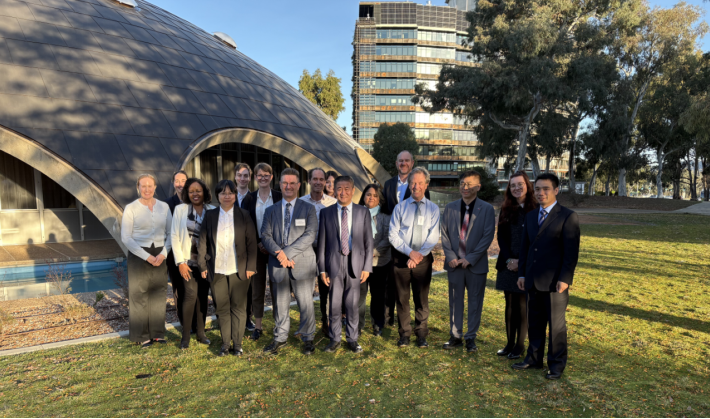 192025-05
192025-05
-
 2025-09-11IPPCAAS Advances Joint Prevention and Control of Transboundary Crop Pests and Diseases in Southwest China — Field Demonstration on Monitoring and Control Technologies Held in Jiangcheng, YunnanLEARN MORE
2025-09-11IPPCAAS Advances Joint Prevention and Control of Transboundary Crop Pests and Diseases in Southwest China — Field Demonstration on Monitoring and Control Technologies Held in Jiangcheng, YunnanLEARN MORE -

-
 2025-07-08Workshop on Green Control Technology for Corn Pests and Diseases in the Lancang-Mekong Region successfully held in KunmingLEARN MORE
2025-07-08Workshop on Green Control Technology for Corn Pests and Diseases in the Lancang-Mekong Region successfully held in KunmingLEARN MORE
-
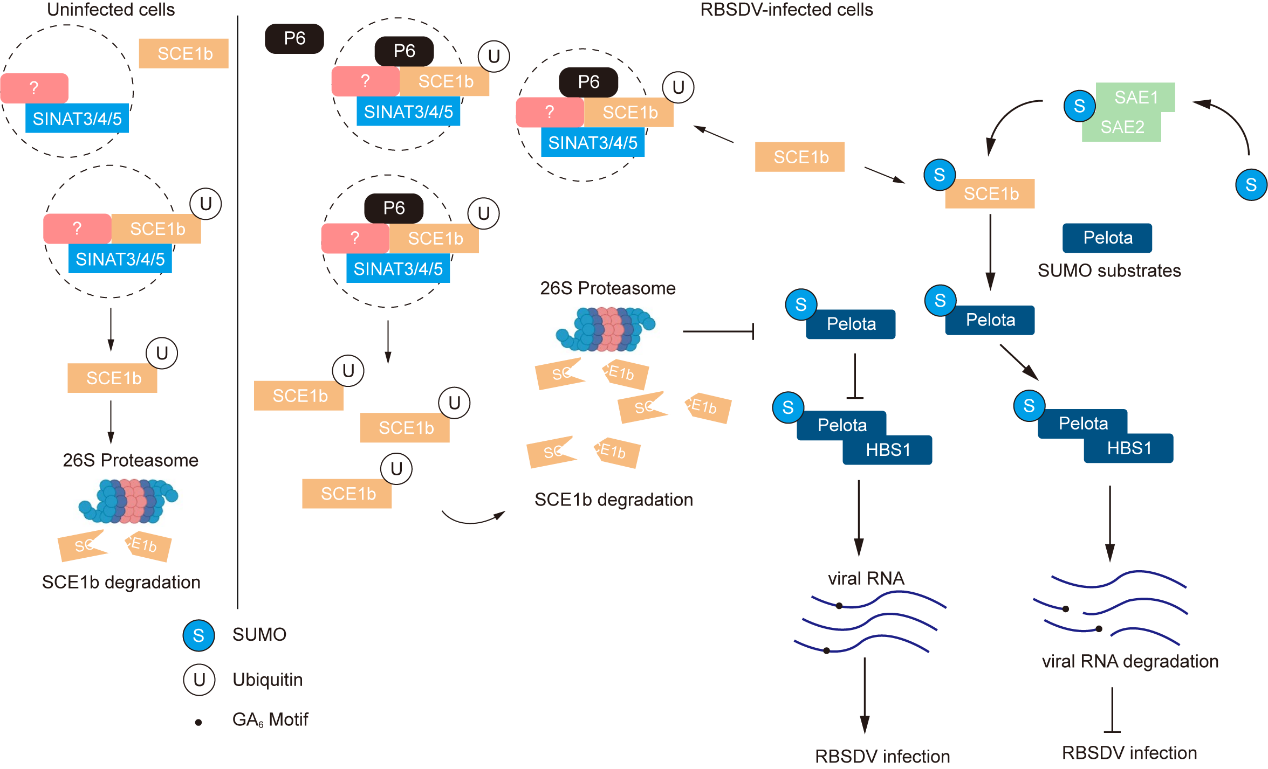 IPPCAAS and Partners Reveal a New Mechanism by Which Virus Suppresses Rice Antiviral RNA Decay to Promote Infection
IPPCAAS and Partners Reveal a New Mechanism by Which Virus Suppresses Rice Antiviral RNA Decay to Promote Infection -
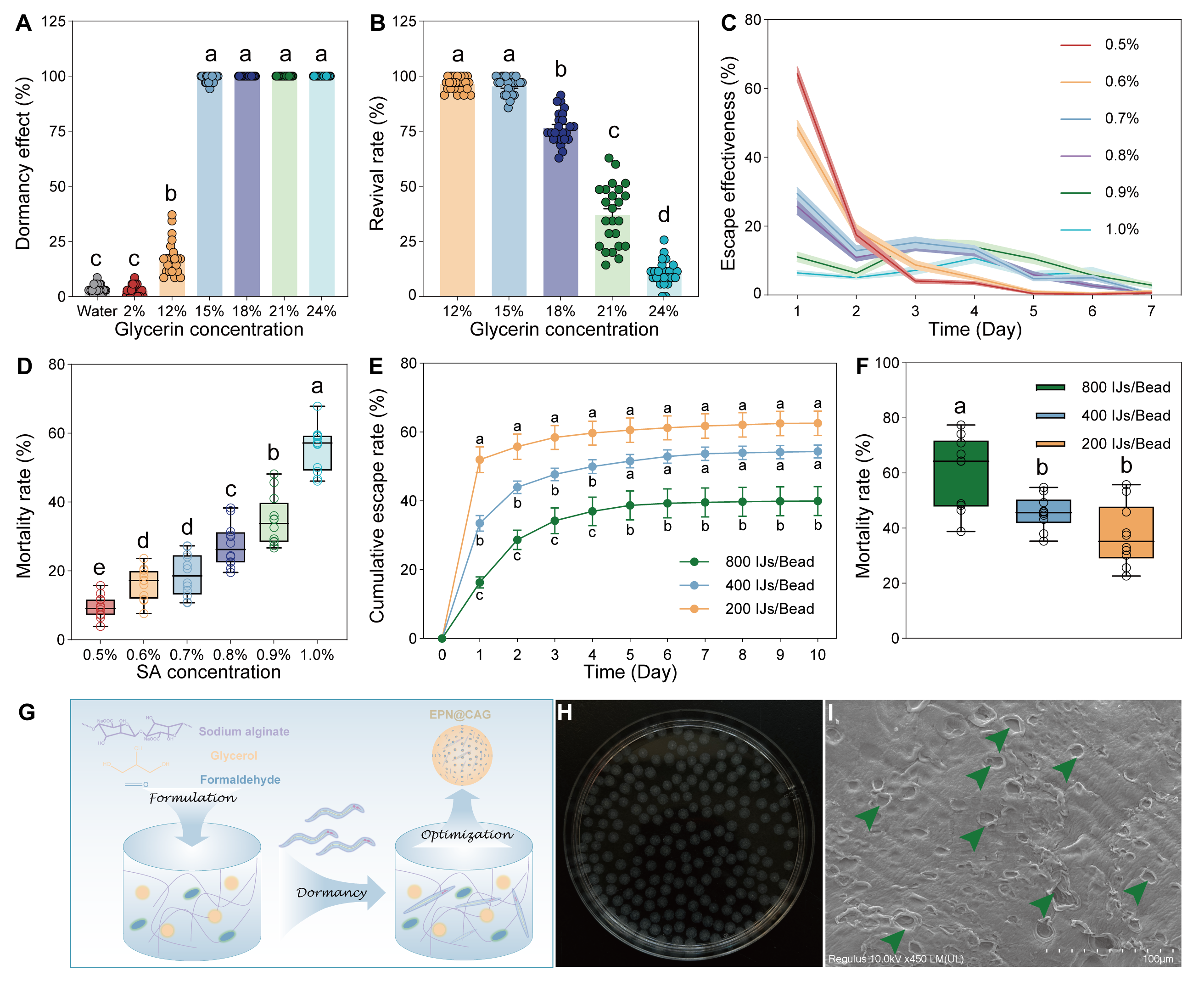 IPPCAAS Develops Slow-Release Capsules of Entomopathogenic Nematodes to Enhance Biocontrol Application Technology
IPPCAAS Develops Slow-Release Capsules of Entomopathogenic Nematodes to Enhance Biocontrol Application Technology -
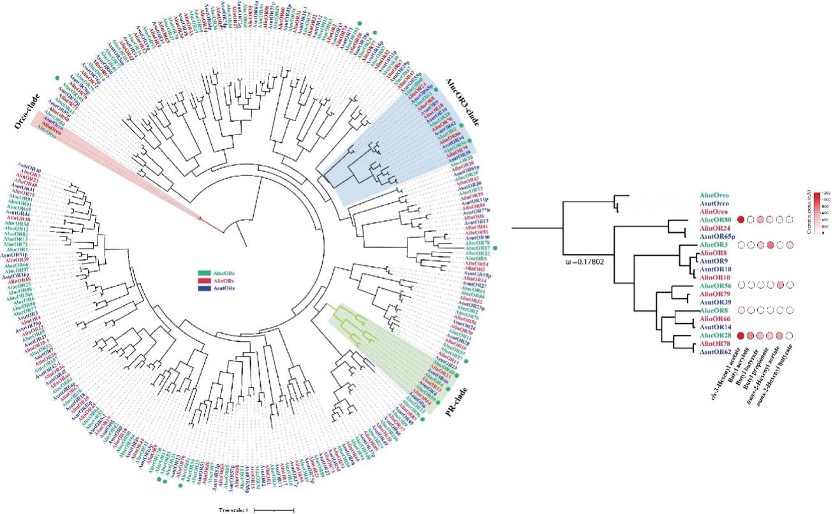 IPPCAAS Reveals Molecular Mechanism of Dual Sensitivity of Green Plant Bug Odorant Receptors to Sex Pheromones and Host Plant Volatiles
IPPCAAS Reveals Molecular Mechanism of Dual Sensitivity of Green Plant Bug Odorant Receptors to Sex Pheromones and Host Plant Volatiles

